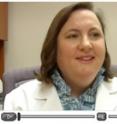Researchers find better method to help mothers cope with child's cancer and related stress
Mothers who have children diagnosed with cancer now have a better approach to address and cope with stresses associated with their child's disease. A new certified intervention has proven to be more effective long term compared to other psychological methods, as reported today at the 42nd Congress of the International Society of Pediatric Oncology.
In a joint oral presentation, researchers from The University of Texas MD Anderson Children's Cancer Hospital and Jonathan Jaques Children's Cancer Center of Miller Children's Hospital Long Beach reported that mothers of newly diagnosed patients were able to decrease their stress level sooner and sustain that level longer with an intervention known as Problem-Solving Skills Training (PSST).
The multi-institutional randomized trial, conducted through the Psychosocial Adaptation to Childhood Cancer Research Consortium, also showed that Spanish-speaking mothers had the most significant response to the training compared to English-speaking and Arabic-speaking mothers.
Three months after their child's initial diagnosis, the stress levels of mothers receiving PSST had decreased twice as much as mothers who had no intervention. In the consortium's 2009 study, researchers also evaluated PSST in comparison to reflective listening, a form of one-on-one counseling. Although both therapies decreased the stress level significantly, mothers counseled only with reflective listening eventually returned to higher stress levels after three months, unlike those who had Problem-Solving Skills Training.
In addition, the study evaluated the efficacy and feasibility of using a personal digital assistant (PDA) to supplement the training. Although there was no significant benefit reported from using an electronic device in coordination with PSST, participants rated the PDA-based program favorably, which could lead to more technology-based interventions in the future, said the co-presenters.
"Now that we have developed a solid intervention that we know helps mothers cope with stress, we want to create computer-based programs that will provide problem-solving training to parents who may not have access to psychologists or other support systems," said Martha Askins, Ph.D., assistant professor at MD Anderson Children's Cancer Hospital in Houston.
The PSST intervention was developed through the consortium. The training consists of eight, one-hour individual sessions between mother and therapist, in which they identify the mother's primary stressors, brainstorm solutions, weigh the benefits and costs associated with each solution, implement one of the solutions and evaluate its effectiveness.
"In families with more than one child, it's common for us to counsel with mothers who are stressed about being there for their child in the hospital as well as their children back home," said Askins, co-presenter of the report with Miller Children's Sandra Sherman-Bien, Ph.D. "Using PSST, we've been able to come up with solutions that address this personal dilemma."
Also known as the Bright Ideas program, the method was designated recently by the U.S. Department of Health and Human Services as a research-tested intervention that will be included in their National Registry of Evidence-based Programs and Practices. Funding for the study was provided through the National Institutes of Health.
Source: University of Texas M. D. Anderson Cancer Center
Other sources
- Researchers find better method to help mothers cope with child's cancer and related stressfrom PhysorgThu, 21 Oct 2010, 17:20:39 UTC
- Researchers find better method to help mothers cope with child’s cancer and related stressfrom Science BlogThu, 21 Oct 2010, 16:22:22 UTC
